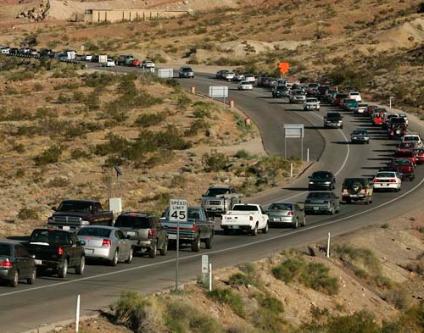TransCore’s North American Freight Index measuring spot market truckload freight volume declined 14 percent in April from March, but was 12 percent higher than in April 2010.
Freight volumes in the South and Midwest were hampered by extreme weather conditions during April.
TransCore said the month-to-month decline from March to April was the time in 15 years when spot market freight volume dropped during that period. From March to April, dry van capacity increased 6.7 percent and freight availability declined 9.5 percent. Refrigerated capacity increased 3.4 percent, while freight availability slipped 5.1 percent. Flatbed capacity and freight volumes dipped, 2.6 percent, and 9.7 percent, respectively.

TransCore’s monthly North American Freight Index measures trucking freight movements on the spot market, reflecting freight availability on TransCore’s network of load boards in the United States and Canada.











